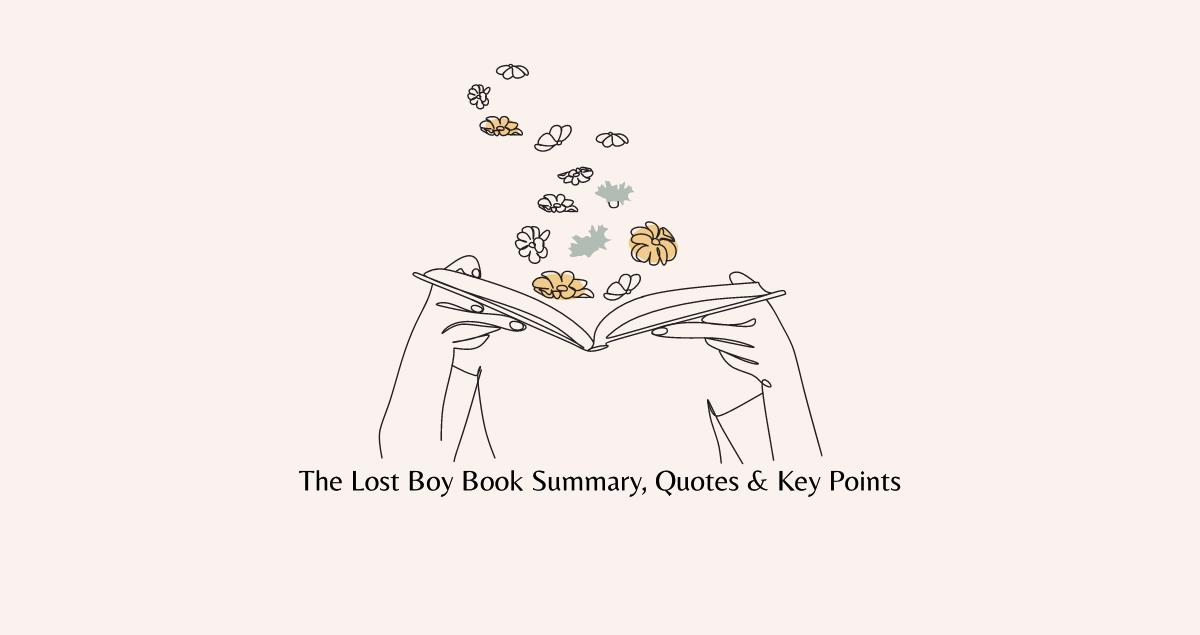The Lost Boy Book Summary
Plot Summary
The Lost Boy picks up where A Child Called "It" left off, with Dave Pelzer, a young boy, being removed from his abusive mother's home and placed in foster care. The book follows Pelzer's journey through the foster care system, as he moves from one home to another, searching for a place where he can feel loved and accepted.
The Lost Boy also explores Pelzer's relationship with his father, who is an alcoholic and unable to care for his son. Pelzer's father eventually leaves the family, leaving Pelzer feeling abandoned and alone. Throughout the book, Pelzer struggles to come to terms with his past and find a way to move forward.
Character Analysis
The Lost Boy is primarily a character-driven story, with Pelzer as the main character. Throughout the book, Pelzer is portrayed as a resilient and determined individual who refuses to let his past define him. Despite the abuse and neglect he suffered as a child, Pelzer is able to find the strength to overcome his trauma and build a better life for himself.
Themes Explored
The Lost Boy explores a number of themes, including child abuse and neglect, resilience, survival, and the importance of education. The book also touches on the themes of family, love, and acceptance, as Pelzer searches for a place where he can feel like he belongs.
Writing Style
Pelzer's writing style in The Lost Boy is straightforward and easy to read. The book is written in the first person, which allows readers to connect with Pelzer on a personal level. Pelzer's writing is also very descriptive, which helps to bring the story to life and make it more engaging.
Reception and Impact
The Lost Boy has been well-received by readers and critics alike, and it has had a significant impact on the way that people view child abuse and neglect. The book has helped to raise awareness about the issue and has inspired many people to take action to help children who are in similar situations.
The Lost Boy Book Review
The Lost Boy is a powerful and moving memoir that tells the story of a young boy who suffered from severe abuse and neglect at the hands of his mother. Dave Pelzer's writing is raw and honest, and he does an excellent job of bringing his story to life. The book is a must-read for anyone who is interested in the issue of child abuse and neglect, and it is sure to leave a lasting impression on readers.
The Lost Boy Quotes
"I always thought it was funny when people told me I'd be sorry when I grew up, sorry I was so mean to my little brother. I'm not sorry. I don't know why I didn't kill him myself."
"I never cried in front of anyone. I never let anyone see me. I cried alone."
The Lost Boy Key Points
Child Abuse and Neglect
- The Lost Boy is a memoir about a young boy who suffered from severe abuse and neglect at the hands of his mother.
- The book explores the impact that child abuse and neglect can have on a child's life.
Resilience and Survival
- The Lost Boy is a story about resilience and survival.
- The book shows how Dave Pelzer was able to overcome his trauma and build a better life for himself.
FAQs for The Lost Boy
What is the book about?
The Lost Boy is a memoir about a young boy who suffered from severe abuse and neglect at the hands of his mother.
What is the relationship between the author and his brother?
The author had a difficult relationship with his brother, who he often treated poorly.
What is the author's experience with foster care?
The author spent much of his childhood in foster care, moving from one home to another.
What is the impact of child abuse on the author?
The author suffered from severe emotional and physical trauma as a result of the abuse he experienced as a child.
How does the author cope with his trauma?
The author copes with his trauma by finding ways to express his emotions and by seeking out positive relationships with others.
What role does education play in the author's life?
Education plays a significant role in the author's life, as it provides him with a way to escape his past and build a better future for himself.
What is the author's relationship with his mother?
The author's relationship with his mother is abusive and neglectful.
What is the author's relationship with his father?
The author's relationship with his father is complicated, as his father is an alcoholic and unable to care for his son.
What is the author's relationship with his foster parents?
The author has a number of different foster parents throughout the book, some of whom are kind and caring, while others are abusive and neglectful.
What message does the author want to convey through his story?
The author wants to raise awareness about the issue of child abuse and neglect and inspire others to take action to help children who are in similar situations.

